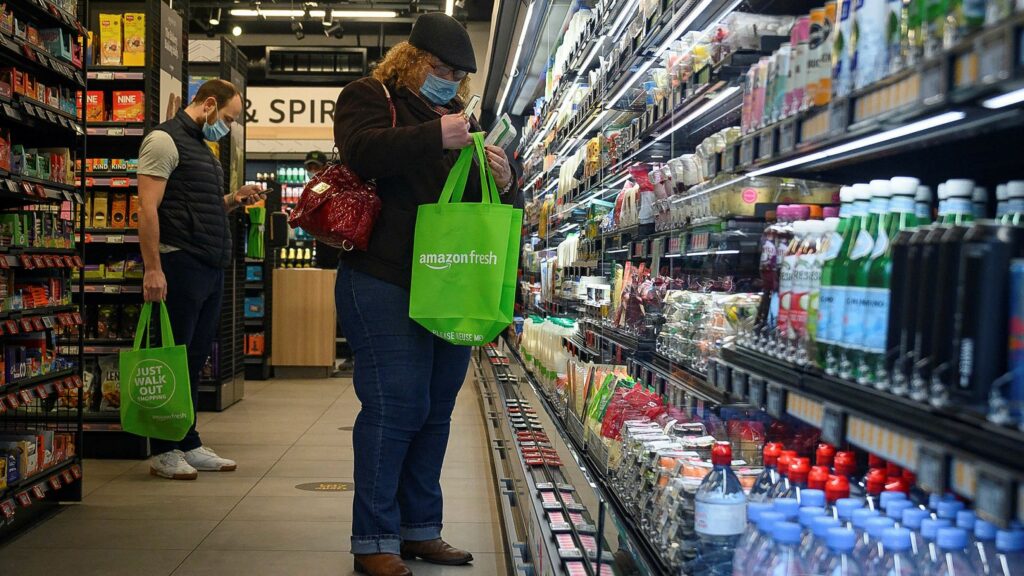Amazon designated as a grocer by CMA in regulatory crackdown


The UK competition regulator has designated Amazon as a grocer and placed it under new rules governing the way supermarkets treat their suppliers in the latest regulatory assault on the tech giant’s dominance.
The Competition and Markets Authority said on Wednesday it was adding Amazon to a list of retailers, including Tesco and Waitrose, that since 2009 have adhered to a code of practice that prevents large grocers from squeezing their suppliers.
It is the latest blow to Amazon as the company battles antitrust probes worldwide and prepares for the imposition of new rules governing big tech currently being drafted by regulators in Brussels and the UK.
In a regulatory notice, the CMA said Amazon’s entry into the UK grocery market through its acquisition of Whole Foods in 2017 and its Amazon Fresh delivery service and physical stores brought it in scope of its rules.
The groceries supply code of practice applies to retailers who generate more than £1bn from UK grocery sales. This includes prohibitions on companies making last-minute changes to supply contracts and ending agreements with no notice.
The CMA said Amazon was “one of the largest companies in the world with a market capitalisation of $1.44tn”. It added there was a risk that without regulation “Amazon and the companies that are part of the Amazon corporate group of companies” could “use their size and status” to negotiate more favourable terms with grocery suppliers.
“Households across the UK are increasingly using Amazon to buy food and other essential items. Today’s decision to designate Amazon helps to ensure a level playing field for companies active in the groceries sector as people’s buying habits evolve,” said Adam Land, senior director for remedies, business and financial analysis at the CMA.
“These rules mean that the thousands of companies supplying Amazon with groceries are now protected from potential unfair business practices.”
Amazon does not offer own-label food ranges but delivers groceries through its Amazon Fresh service, as well as operating physical stores. The company opened its first Amazon Fresh shop in the UK last year and bought Whole Foods for $13.7bn in 2017, which it runs through its Fresh and Wild subsidiary.
According to the regulator, Amazon has pushed back against the CMA’s designation, arguing that its Fresh and Wild subsidiary turned over less than £100mn and operated out of only seven shops. In its notice, the regulator said Amazon claimed that designating Fresh and Wild as a grocer for the purpose of regulation would create a “chilling precedent”.
Amazon is also facing an investigation by the UK regulator over whether it is doing enough to prevent fake reviews on its site, as well as two ongoing investigations in Brussels into its use of data.
Amazon said: “We strive to build successful, long term relationships with our suppliers and look forward to working with the Groceries Code Adjudicator. We are proud to work with thousands of suppliers and offer a great shop window for their products in the UK and around the world.”